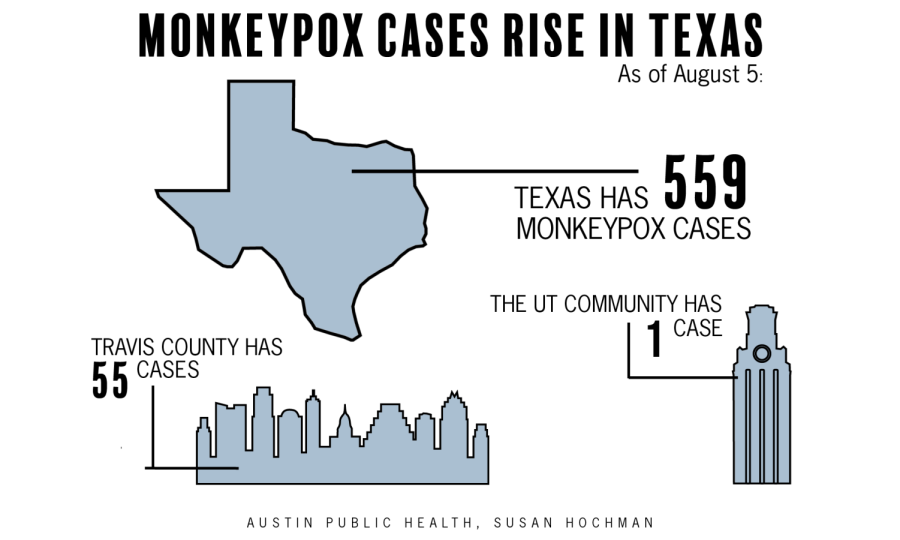University Health Services addresses monkeypox concerns
August 22, 2022
The City of Austin declared monkeypox a public health emergency Aug. 9, but students who attend in-person classes are at low risk for contracting the illness, University health officials say.
UT officials confirmed a case of monkeypox on campus in July, but there have been no confirmed cases since. Experts say the risk to the UT community remains low.
Terrance Hines, UHS chief medical officer, said students can decrease the risk of infection by assessing their own tolerance for risky activities — such as going to parties or experiencing close contact with many individuals — and acting accordingly. Someone can contract monkeypox from direct contact to a monkeypox rash, scab or bodily fluid, or “through respiratory secretions during prolonged face-to-face contact,” according to the Centers for Disease Control and Prevention.
“One of the most important things is for individuals to address their own risk by limiting those with whom they have prolonged skin-to-skin contact,” Hines said. “It is not a sexually transmitted illness, (so) one has an awareness that anyone could become infected.”
Hines said daily activities such as passing someone in the hallway or sitting next to other students in class present a low risk.
Monkeypox symptoms, including a fever, swollen lymph nodes or a cough, may be similar to other illnesses, but a rash is an indicator that an illness might be monkeypox, Hines said. Individuals who have been in contact with someone exposed or who have participated in high-risk activities should monitor any symptoms more carefully.
Hines said monkeypox cases would be dealt with individually, but should an individual contract monkeypox, the University would take steps such as contact tracing, offering the post-exposure vaccine and helping with academic and housing accommodations.
Students are encouraged to call the nurse advice line if they are concerned they might have monkeypox.












